Cost of living: Colder pools and fewer theatre shows
- Published
- comments

Leisure centres in Wales are reducing pool temperatures to cut down on energy bills
Swimming pools are having to turn down the heat of their water due to soaring energy costs, the Senedd has been told.
The Senedd's culture and sport committee heard pools were facing an "energy crisis" and arts centres were scaling back to stay open.
One rugby club, which raised prices after its utility bills tripled, said its patrons faced "difficult choices".
A theatre company also said it had to cut ticket prices, despite rising costs, fearing they will not sell.
It comes as the leisure and arts sectors said their revenues still have not recovered to pre-pandemic levels.
Andrew Howard, of the Welsh Sports Association, warned colder pools could impact children and the elderly.
Mr Howard told the committee any centre with high energy usage was "at threat" due to rising costs, and swimming pools were particularly vulnerable despite demand increasing since before Covid.
Leisure centres have already taken steps to reduce running costs, such as reducing pool temperatures, cutting down on social activities and reduced weekend opening hours.
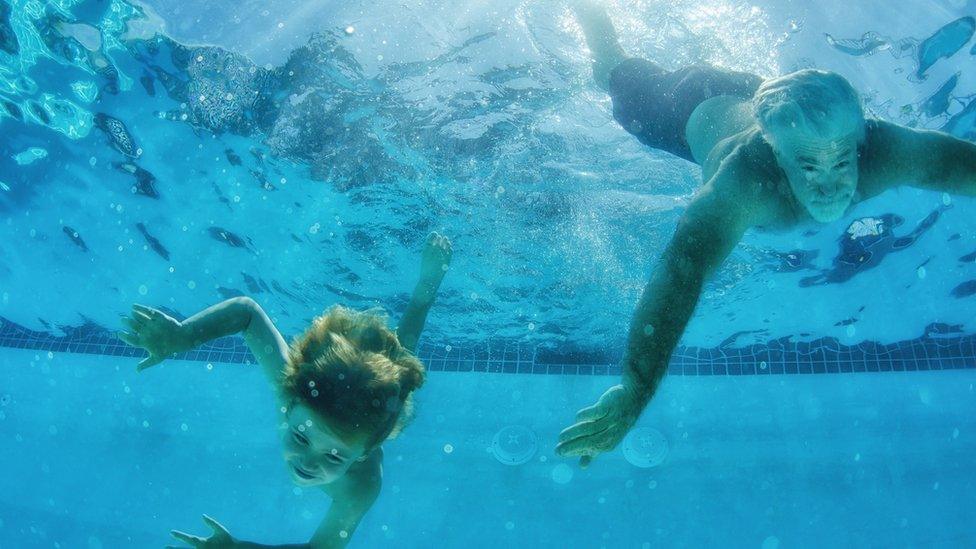
Mr Howard warned that if the temperature is turned down in pools, this would impact the elderly and children
Half of all leisure centres in Wales are run by leisure trusts, and The Welsh Sports Association and Community Leisure UK said most in the sector reported a return of only 80% of pre-Covid levels.
It said: "This means that at present there are already fewer people being physically active in leisure centres than there were prior to the Covid-19 pandemic."
Data from the Community Leisure UK membership also showed that energy costs could be as high as a 200% increase when compared with 2019.
Safety implications
Owen Hathaway, from Sport Wales, told the committee: "In the best of times if you live in an area of deprivation you are less likely to participate in sport."
He said there were safety implications if people, particularly women, chose to run on dark winter nights instead of going to a leisure centre.
Meanwhile, Bedwas RFC near Caerphilly, said it had seen its utility bills triple in recent months.
"The cost of living crisis has had a massive impact.... both on and off the pitch," said club secretary Will Rees.
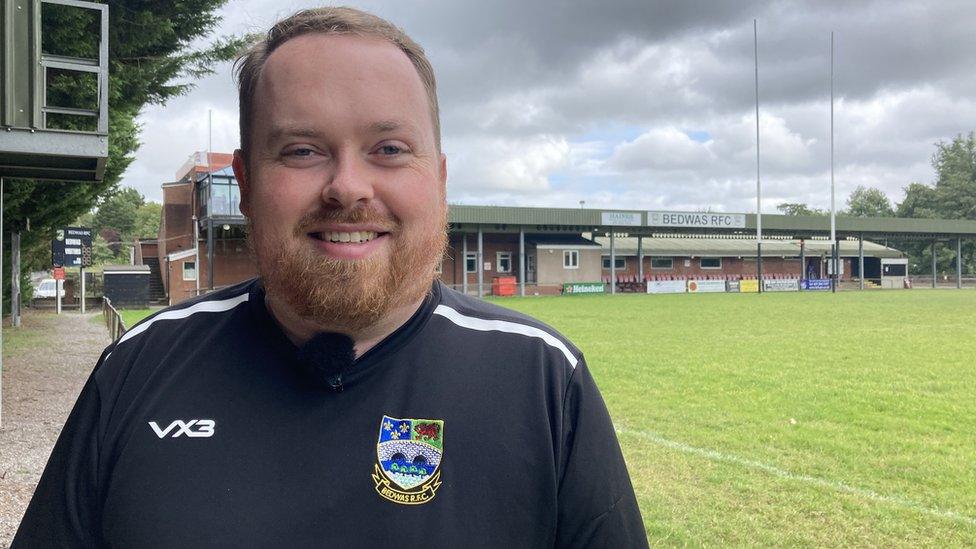
Will Rees said "absolutely everything" had gone up in the past 12 months
He said the club has had to leave aside "fixes" to try to cover day-to-day costs.
"It gives us less money to reinvest into the facility and into our future players," he added.
Mr Rees also said he was concerned the club's income could also start to suffer if problems with the cost of living started to price out its players and supporters from staying involved.
"Rugby is optional," he said. "People have to prioritise how they're spending and maybe they don't have enough money to come to the club every weekend.
"We try our best to keep our memberships as low as possible for our playing sides, but people have to make tough choices," he added.
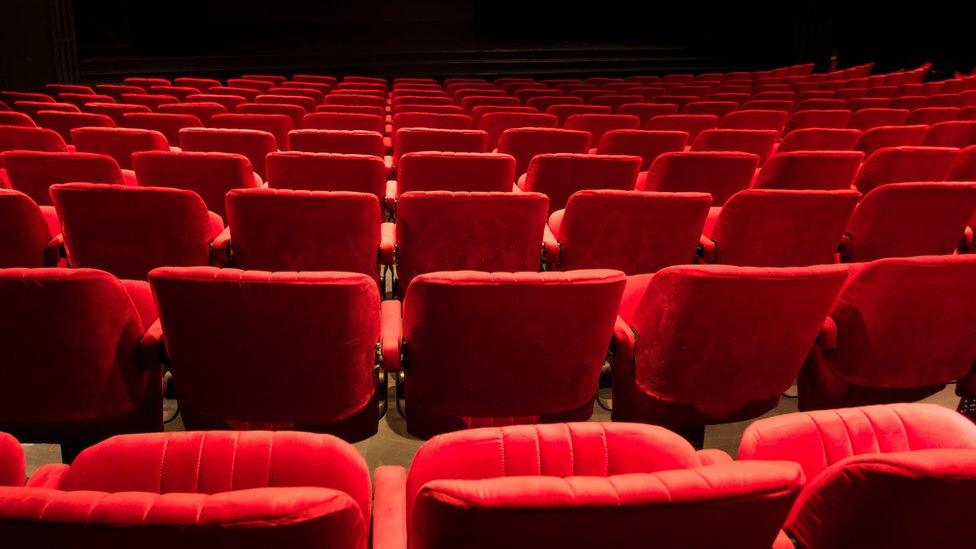
Art centres and theatres are also feeling the pinch, with many having to limit showings and activities
Meanwhile, Arts Council of Wales (ACW) boss Michael Elliott told the committee more than 50% of arts venues who responded to a recent survey said they were having to reduce their activities.
Recent ACW figures showed audience numbers were only at 60% to 80% of pre-pandemic levels.
Energy costs for arts venues are doubling, despite the six-month support for businesses offered by the UK government, with 40% of venues who responded to the ACW survey saying they would be coming off a fixed energy contract during 2023.
A number of companies said they were having to "play safe" in their choice of events, with the Christmas shows as being particularly important for the sustainability of the sector.
Mr Elliott suggested targeted support of around £5m to £10m was needed to secure the sustainability of the arts sector over the next six months to a year.
Avant Cymru, a theatre group in Tylorstown, Rhondda Cynon Taf, said it was already feeling the effects of people having less money.
The group relies on the support of freelancers and volunteers to put on productions, but the group's artistic director, Rachel Pedley, said that may become impossible to sustain.
"We might be struggling to work with that many people because we can't guarantee pay and we can't be expecting people to work for free", she said

Avant Cymru fears it may not be able to puts on special events, like this breakdancing class for mental health in 2019
Despite already offering reduced ticket prices for many of their productions, Ms Pedley said it may not be enough to entice people to part with their money.
"I don't think we'll be able to budget in a ticket income", she said. "It's too precarious.
"We already had 'pay what you can' options, we already had free spaces for classes," she added.
Clara Cullen, of the Music Venue Trust, also told MSs they were worried some venues would close within six months.
She added many were already closing on weekdays to cut down on running costs.
According to Louise Miles-Payne, director of performing arts body Creu Cymru, producers are having to balance increasing ticket costs with trying to keep tickets affordable for audiences, while there are concerns about a skill shortages as people leave the sector.
She said that a number of arts venues across Wales were also preparing to be "warm banks" over the winter, to provide warm places to go for people struggling with energy costs.

RUCK STARS: Two of the biggest teams in rugby go head to head
BAFTA CYMRU NOMINEES: Celebrate the best of the BBC

- Published29 September 2022
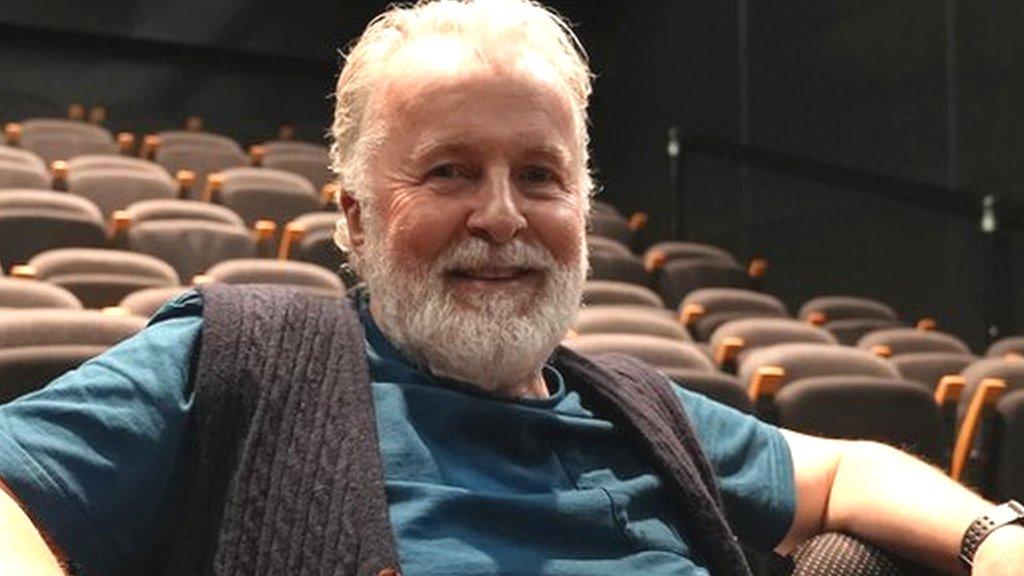
- Published26 August 2022
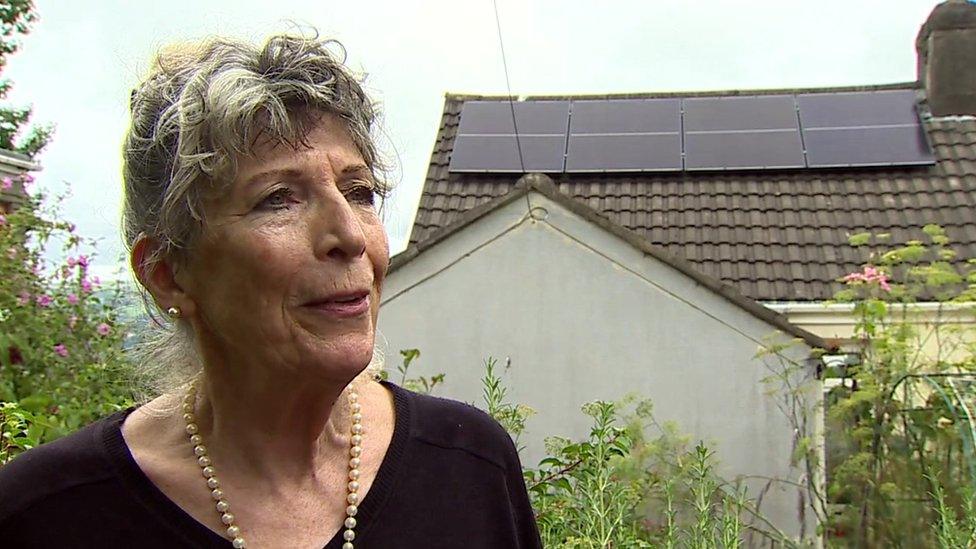
- Published26 June 2022
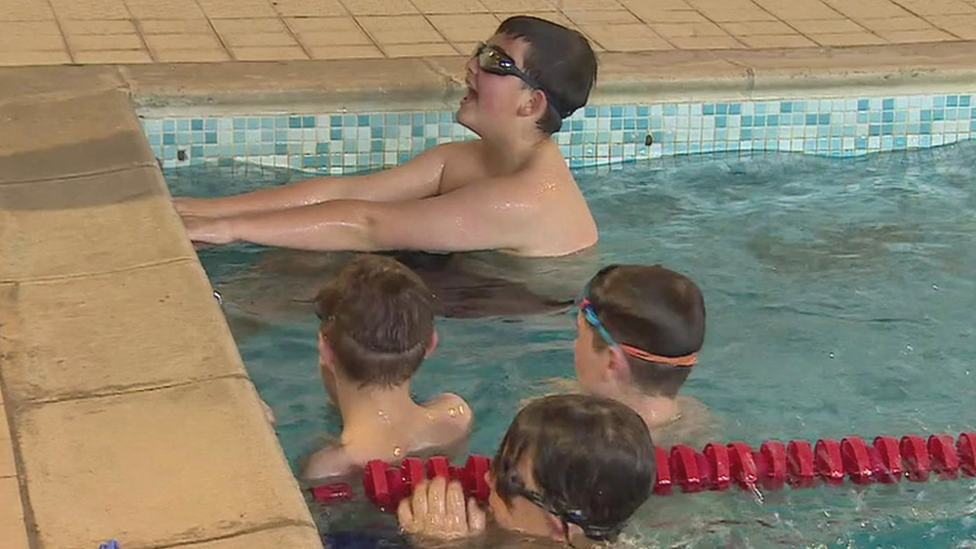
- Published5 September 2022
